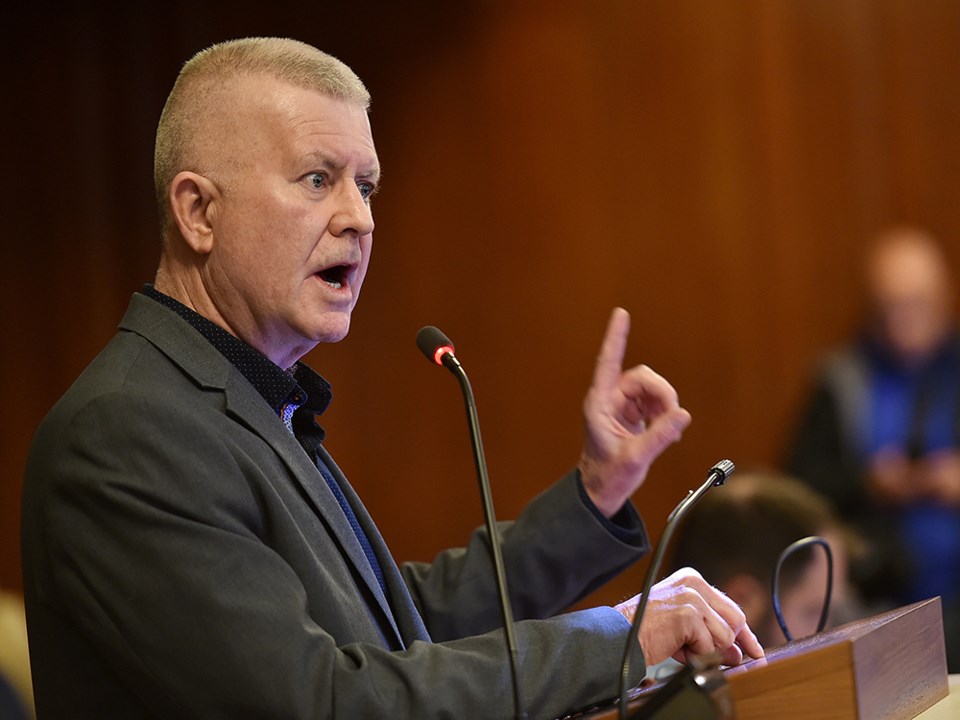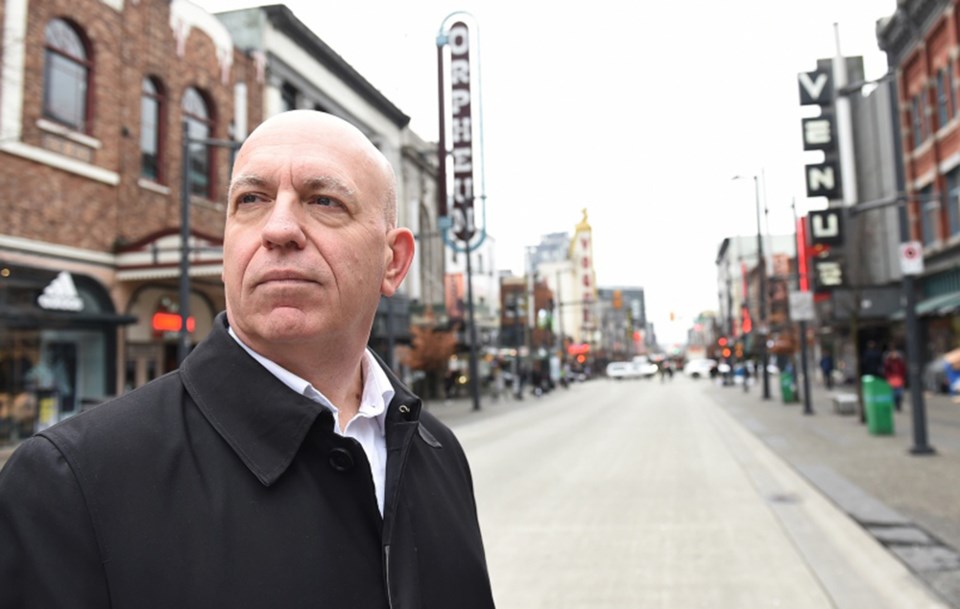Fighting on Vancouver streets will soon cost ill-advised combatants $1,000 a pop.
The new penalties were approved unanimously and without discussion by council Dec. 10. The bylaw is worded in a way that seeks to deter fighting specifically in the Granville Entertainment District (GED), though the change applies to all corners of the city.
“It’s what we’ve been asking for,” said Charles Gauthier, president of the Downtown Vancouver Business Improvement Association.
The previous fine amount was $500, but did little to deter the problem, at least according to statistics from the Vancouver Police Department. There have been roughly 1,600 reports of assault annually over the last five years in the Central Business District, far and away the highest number anywhere in the city.
Those numbers include reports from 2014 to 2018, while stats from 2019 go up until the end of October. So far, there have been 1,478 assaults this year in the area bound by Burrard and Main streets, stretching north to Coal Harbour and including the Granville Entertainment District.
The Courier asked the VPD for stats specific to incidents of fighting, but did not receive those numbers before print deadlines. The VPD did, however, back council’s move to increase the fines, which are the most that can be charged under the Vancouver Charter. Fines paid within 30 days will remain at $500.
“The graduated fine payment approach has proven effective for the collection of city parking tickets with 63 per cent of tickets paid within the discount period,” notes a staff report prepared by chief licence officer Kathryn Holm.
“Providing additional incentive to pay a reduced rate is likely to increase fine collection rates.”
Those who don’t pay could face punitive penalties with respect to credit ratings. In August, the city’s revenue services department began sending tickets to the Credit Bureau of Canada Collections when tickets weren’t paid within 60 days.
After a 90-day lapse, the debt is then reported to the two main credit rating agencies, Equifax and TransUnion.
Past efforts going back 25 years and numerous provincial governments have continually failed to make inroads on even more severe penalties.
Whether via the city, other municipalities or UBCM resolutions, seven attempts have been made to tie outstanding fines to the renewal of a driver’s license or vehicle insurance.
They’ve been refused, largely on account of the potential for a Charter of Rights and Freedoms challenge.
 Bar Watch founder Curtis Robinson, shown here speaking before city council council in February 2018, wants more late-night SkyTrain service to help curtail fighting on the Granville Strip. Photo: Dan Toulgoet
Bar Watch founder Curtis Robinson, shown here speaking before city council council in February 2018, wants more late-night SkyTrain service to help curtail fighting on the Granville Strip. Photo: Dan Toulgoet Barwatch founder and ex-VPD officer Curtis Robinson considers those failed attempts a huge miss. And while he lauds the fine increase, Robinson said the issue of violence in the area could be curtailed significantly by extended late night transit service.
“Having worked on Granville Street for years as a police officer, the secret to handling this problem is allowing people a method to get home safely, which is late-night transit including SkyTrain, Canada Line service, Uber and Lyft,” Robinson said.
Robinson and Gauthier said they’ve been told by TransLink officials that late night SkyTrain isn’t an option, due to the need for overnight servicing of the system. Night bus service, however, was added near Granville and Georgia last year. Having been with the downtown BIA since 1992, Gauthier says the GED needs a bit of a facelift to help curb the drunken chicanery.
He wants more taxi access and a better mix of businesses, some of which would offer food and others that serve no alcohol at all. “Frankly, I think the day of the nightclub is coming to an end,” Gauthier said.
“It will always be [part] of the nighttime economy… but it doesn’t need to be drink your face off and get into a fight.” Robinson helped introduce a code of conduct last spring across the 30-plus Bar Watch bars, which are located in the GED, Gastown and Yaletown, along with a smattering of Donnelly Group bars in other parts of the city.
That code includes year-long or lifetime bans for offences ranging from verbal abuse to weapons possession, sexual assault, violent behaviour and drink spiking. Robinson estimates about 10 lifetime bans have been issued since the code was introduced in May 2018. “Making sure [patrons and staff] get home safely is a very big deal for us,” he said.
— John Kurucz / @JohnKurucz




